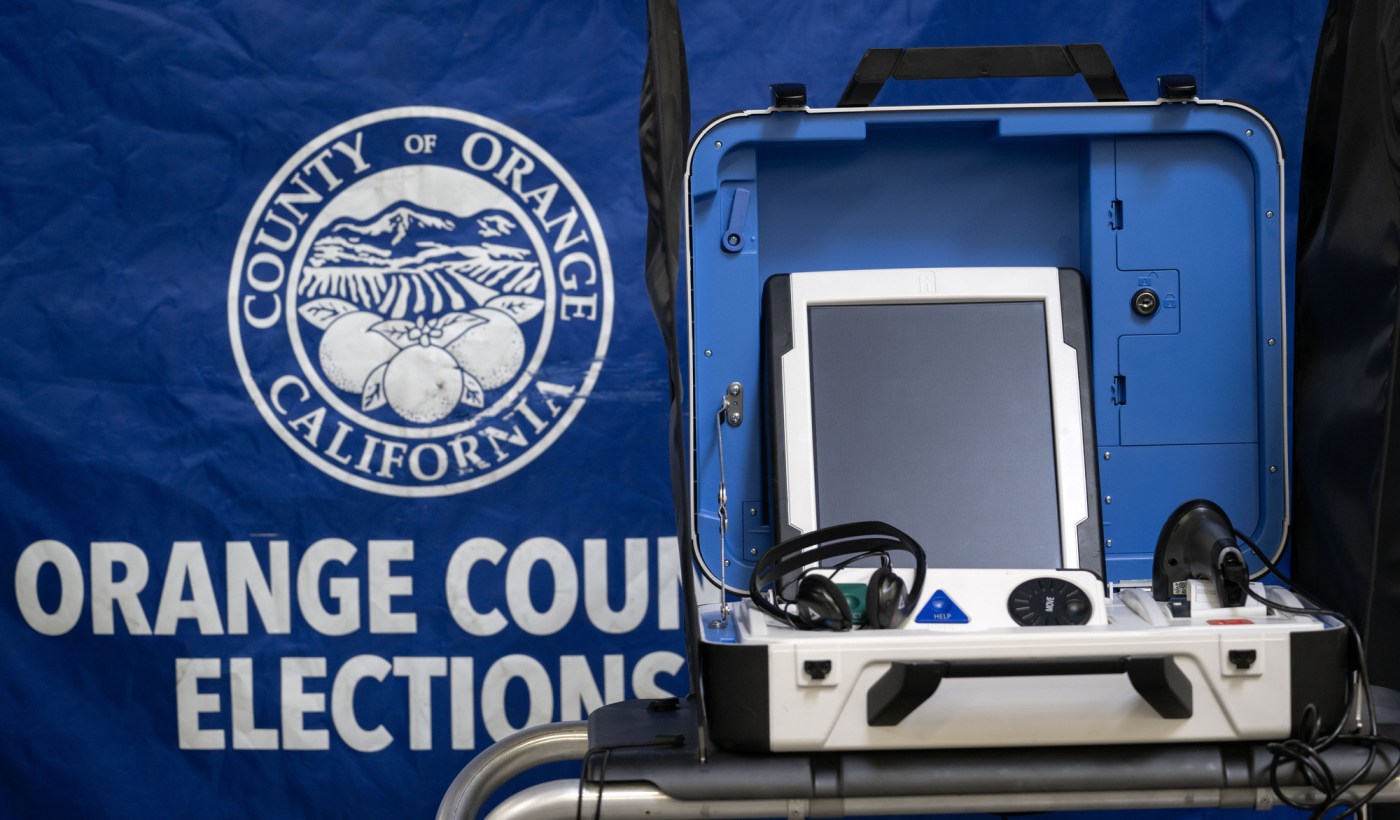Instead of ballots, Orange County’s registrar of voters is collecting feedback this summer on the election process.
Starting Saturday, July 12, the registrar is hosting several workshops to hear from Orange County voters on polling and ballot drop box locations, accessibility of polling stations, language access, voting outreach programs and safety procedures.
The workshops — several of which offer other languages, including Chinese, Korean, Spanish and Vietnamese — run through the rest of the month and into August.
They are an effort to solicit feedback on how the county can update and improve its Election Administration Plan, which governs how the voting process works in Orange County, said Bob Page, the registrar of voters.
Workshops, which can last between one and one and a half hours, will be split into two categories: general public workshops and accessibility language workshops.
General public workshops are opportunities for anyone to provide feedback. Accessibility language workshops — in addition to having translators for various languages — will focus on how polling centers can better accommodate those whose first language is not English.
Rooms will be divided into five sections — voting and ballot drop box locations, accessibility of voting facilities, language assistance and accessibility services, voter education and outreach programs and safety and security of the election process — where attendees can provide verbal or written feedback, said Page.
Attendees can participate in one or all of the categories. There will also be a packet for attendees who would rather write down all of their feedback instead of visiting each station separately.
“We wanted to give them an opportunity to be comfortable providing feedback in the method they want in the areas they want,” said Page.
The Voters Choice Act, a state law that lays out how counties administer an all-mail ballot election system with ballot drop-off locations and vote centers, requires the registrar to hold a public feedback forum after initial changes are made to the election plan. But Page said his office is hosting the series of workshops — before the plan is edited — to give local voters more involvement in the process.
“We don’t want to just do the minimum required,” Page said. “We want to make sure that we’re getting feedback from as many different people as we can.”
Other factors the registrar is considering for updates include federal and state law, data from previous elections, best practices determined by the registrar and the county budget, Page said.
“The community input and feedback is a very important part of any update we make, but that has to be balanced with those other four elements in terms of what is actually in the plan,” Page said.
Aside from the 15 scheduled workshops, the registrar has invited more than 250 organizations to schedule small group meetings. Many of these organizations are involved in voter outreach and the voting process by lending their facilities for polling locations and drop-off boxes, Page said.
The registrar plans to complete the initial feedback process in the first week of August, Page said. The registrar’s office will then compile summaries of the feedback to be published online and create the first draft of the new 2026-2030 EAP.
“I’ve got a deadline to meet and I’m trying to do my best to give people as much time as possible and as many different formats to provide input,” Page said.
The secretary of state has requested the final draft of the EAP by Dec. 1, although by law it is due 120 days before the June 2026 primary election, which would be in February 2026, Page said.
After the first draft of the EAP is published, there will be a 14-day public review period during which people can provide additional comments on the plan. The registrar’s office has also scheduled a public hearing for Sept. 25 at the Irvine City Hall for in-person feedback.
The registrar will make necessary changes based on feedback received online and at the hearing, Page said. The office will then post a final draft that receives the same 14-day review before final changes are made and the EAP is sent to the secretary of state.
The election plan spanning 2021-2025 is available in 10 languages on the registrar of voters’ website. More information about the workshops or how to submit a feedback form online can also be found on the registrar’s website.
Workshops are scheduled for:
• Saturday, July 12: San Juan Capistrano Community Center (25925 Camino Del Avion), 10-11:30 a.m.
• Monday, July 14: Buena Park Community Center (6688 Beach Blvd.), 6-7 p.m.; Korean language meeting
• Wednesday, July 16: Los Olivos Community Center in Irvine (101 Alfonso), 6-7 p.m.; Farsi interpretation available
• Thursday, July 17: Delhi Center in Santa Ana (505 E. Central Ave.), 6-7 p.m.; Spanish language meeting
• Saturday, July 19: Fountain Valley Recreation Center (16400 Brookhurst St.), 10-11 a.m.; Vietnamese language meeting
• Monday, July 21: South Coast Chinese Cultural Center in Irvine (9 Truman St.), 6-7 p.m.; Chinese language meeting
• Tuesday, July 22: Southwest Senior Center in Santa Ana (2201 W. McFadden Ave.), 6-7:30 p.m.
• Wednesday, July 23: Zoom meeting with ASL interpretation available, 6-7 p.m.
• Thursday, July 24: West Anaheim Youth Center (320 S. Beach Blvd.), 6-7 p.m., Tagalog interpretation available
• Saturday, July 26: Huntington Beach Central Library (7111 Talbert Ave.), 10-11:30 a.m.
• Monday, July 28: Northwood Community Center in Irvine (4531 Bryan Ave.), 6-7 p.m., Japanese interpretation available
• Tuesday, July 29: Norman P. Murray Community Center in Mission Viejo (24932 Veterans Way), 6-7:30 p.m.
• Wednesday, July 30: Buena Park Library (7150 La Palma Ave.), 6-7 p.m.; Hindi interpretation available
• Thursday, July 31: East Anaheim Community Center (8201 E. Santa Ana Canyon Rd.), 6-7 p.m.; Gujarati interpretation available
• Saturday, Aug. 2: Brea Community Center (695 Madison Way), 10-11:30 a.m.





